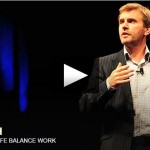Understanding burnout – one step closer to avoiding it

In the last couple of years, burnout has become an increasingly important social and psychological issue, with more and more specialists studying it in order to come up with solutions and recommendations. Should we work less? Rest more? Do more of what makes us happy, outside working hours? Or a combination of all these?
Burnout has become one of the problems we all struggle with, in today’s very fast-paced, competitive world, where you either keep up or are left behind. But beyond all this hype, what exactly is burnout, what are its specific signs and how is it affecting our lives, both personally and professionally?
Burnout – some clarifications
Today, burnout is defined as “the condition of someone who has become very physically and emotionally tired after doing a difficult job for a long time”. An interesting aspect here, though: it is also defined as “the time when a jet or rocket engine stops working because there is no more fuel available”. This might just as well sum up what it is all about – the exhaustion of personal resources, resulting in your body and mind’s inability to function at their highest potential, due to prolonged effort and stress.
According to Maslach, Jackson, & Leiter, burnout is usually defined as a state of exhaustion in which one is cynical about the value of one’s occupation and doubtful of one’s capacity to perform.
Are you suffering from burnout?
As Maslach and Jackson mentioned, burnout includes three primary symptoms:
- Emotional exhaustion – feeling overwhelmed by the amount of work;
- Depersonalization – also known as cynicism or disengagement, detachment or indifference from others at work;
- Reduced personal accomplishment – the tendency to evaluate one’s efforts and achievements negatively.
From an interview with Dr. David Ballard, head of the APA’s Psychologically Healthy Workplace Program, Lisa Gerry (Forbes) extracted 10 specific signs that show you’re suffering from burnout, namely:
- Exhaustion – either emotional, mental or physical;
- Lack of motivation – not feeling enthusiastic about anything anymore and having a hard time dragging yourself to work every day;
- Frustration, cynicism and other negative emotions – feeling more pessimistic than usual;
- Cognitive problems – attention and concentration difficulties;
- Slipping job performance;
- Interpersonal problems at home and at work – either by getting into more conflicts or by withdrawing from any interactions;
- Not taking care of yourself – drinking, smoking, sedentary behavior, not eating enough or not getting enough sleep;
- Being preoccupied with work when you’re not at work – having your work activities interfere with your free time;
- Generally decreased satisfaction – feeling unhappy with your career and home life;
- Health problems – different issues that might appear on the long term, such as digestive issues, heart disease, depression and obesity.
Moreover, the author Sherrie Bourg Carter offers numerous signs that might show you have reached burnout, this time divided between the three above-mentioned components:
- Physical and emotional exhaustion: chronic fatigue, insomnia, forgetfulness/impaired concentration and attention, physical symptoms (chest pain, heart palpitations, shortness of breath, gastrointestinal pain, dizziness, fainting, and/or headaches), increased illness (infections, flu), loss of appetite, anxiety, depression and anger.
- Cynicism and detachment: loss of enjoyment, pessimism, isolation, detachment.
- Ineffectiveness and lack of accomplishment: feelings of apathy and hopelessness, increased irritability, lack of productivity and poor performance.

If you are currently experiencing more of these signs and, of course, after ruling out any physical causes, you might get to the conclusion that you’re suffering from burnout.
My advice? Take relaxation seriously and do whatever helps you relieve stress, as this is all a vicious circle: daily work stress can lead you to burnout. Burnout has, as one of the symptoms, low productivity and performance, which can make you feel like no matter how much you struggle, you can’t get things done. What this feeling will cause is nothing else than more stress, and this is how the circle closes.
Make a weekly relaxation schedule and stick with it. Go out, breath some fresh air, sleep more and eat balanced meals. Reach out to the loved ones and ask for their support and always remember – your body and mind are your most valuable assets, worth way more attention, care and love than whichever part of your life put you in this situation in the first place.
Image sources:

Tags: Personal Development, Personal performance, Work-life balance





